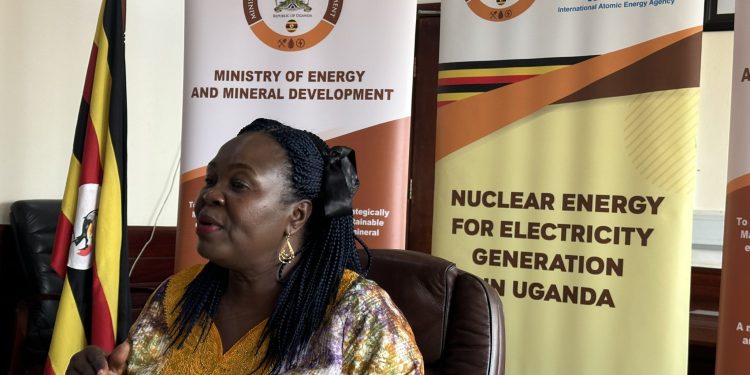Nuclear Energy experts are expected in Kampala next week as more countries in Africa plan to develop nuclear power plants. The Africa Nuclear Business Platform (AFNBP) hosted by the Ministry of Energy and Mineral Development will provide a platform for players in nuclear energy to discuss the financing and viability of nuclear power plants to bridge the energy gap.
According to the Energy Minister, Ruth Nankabirwa, Africa Nuclear Business Platform 2023 (AFNBP 2023) running from March 14-17, 2023 is expected to attract 300 players in Africa’s nuclear energy market. Nankabirwa says the conference presents what she described as an excellent opportunity for Uganda, particularly, and the African continent in general, to find suitable approaches to challenges in the nuclear industry.

About 30 countries in Africa are currently considering nuclear power as part of their energy mix. Egypt, Ghana, Kenya, Morocco, Niger, Nigeria, and Sudan have already engaged with the International Atomic Energy Agency (IAEA) to assess their readiness to embark on a nuclear program. Algeria, Tunisia, Uganda, and Zambia are also moving ahead with plans to set up nuclear power reactors.
Uganda hopes to have the first 2000-megawatt nuclear power plant running by the end of 2031. The plant is likely to be located on the shores of Lake Victoria. Energy Ministry Permanent Secretary, Irene Batebe last year revealed that Uganda was pushing ahead for a nine-billion-dollar power plant. She said Uganda was also sourcing for financing and suitable technologies.
Vision 2040 and the National Development Plans identify electricity as modern energy that will shift the country from a peasantry to an industrialized and predominantly urban society. Electricity has been identified as a critical driver of the socio-economic transformation of a nation. Uganda’s nuclear ambition drive is being steered by the nuclear energy department at the Ministry of Energy in collaboration with the Atomic Energy Council headed by Dr. Akisophel Kisolo.
A number of Ugandans employed at the council have been sent abroad for training in nuclear power technology, regulation, and oversight as part of the preparation for atomic or nuclear energy. “Those people are going to make the leadership team in effectively regulating our nuclear power program in the country,” said a source who asked for anonymity because he is not authorized to speak to journalists.
Uganda hosts Africa Nuclear Business Platform 2023 (AFNBP 2023) amidst growing debate on whether African countries can afford the cost of conventional nuclear reactors like the one Uganda is planning to put up. There are also suggestions that Africa should opt for small nuclear reactors (SMR) instead of conventional reactor technology mainly being supplied and designed by Russia and China.
The Russian invasion of Ukraine has raised concern about whether it can deliver new nuclear reactors to countries where they are needed on time. About 63% of today’s nuclear-generating capacity comes from plants that are more than 30 years old. Many were built in the aftermath of the 1970s oil shocks. Executive Secretary African Commission on Nuclear Energy, Enobot Agboraw recently told a virtual briefing that the continent is open to any technology provided it is cost-effective.











